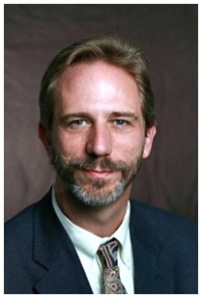
Associated Baptist Press recently carried an opinion column by Baptist Ethicist David Gushee in which the past New Evangelical Partnership chairman shared his initial thoughts on Republican Presidential Nominee Mitt Romney’s acceptance speech. I have had the opportunity to hear Gushee on occasion, including at last year’s anti-torture conference held at United Methodist Duke Divinity School. Gushee also helped organize the recent sexuality conference of the Cooperative Baptist Fellowship.
Gushee prefaces his commentary by explaining that it is “intended to be nonpartisan and to speak to the ethos and values presented.” I found it helpful to hear how someone from an Evangelical Left perspective heard the Republican candidate’s words.
This observation was interesting, because it was so at odds with what I heard:
“On Horatio Alger myths: It seemed very important for Rubio, Romney and everyone else in the Republican camp to proclaim loudly that they believe in America, which seemed largely to mean a place where rags-to-riches stories still happen. The “American Dream” is that anyone can come or grow up here and one day become very successful despite very modest backgrounds.
I wish Romney had noted that this dream of social mobility is actually today harder to achieve in America than in many other countries — and that government policies are among those factors which contribute to our declining social mobility. And Christians, of course, do have a few theological resources for raising questions about whether getting rich is the highest goal in life.”
Cut to Romney’s acceptance speech:
“Every family in America wanted this to be a time when they could get ahead a little more, put aside a little more for college, do more for their elderly mom who’s living alone now or give a little more to their church or charity.
Every small business wanted these to be their best years ever, when they could hire more, do more for those who had stuck with them through the hard times, open a new store or sponsor that Little League team.
Every new college graduate thought they’d have a good job by now, a place of their own, and that they could start paying back some of their loans and build for the future.”
To me, this doesn’t sound like “getting rich is the highest goal in life,” rather “money enables us to do some good things, and this economy has made doing those things more difficult.”
Towards the end of his column, Gushee addresses Romney’s appeal towards women:
“This is not Phyllis Schlafly’s Republican Party. It was good to be reminded that Mitt Romney’s mother actually ran for Senate herself. Clearly Romney was trying to communicate to women that he is concerned about them, too, but in a different way than the Democrats are: not in terms of reproductive choice, but in terms of political and economic opportunity. We will see how that flies in November.”
Did anyone find Gushee’s use of the term “reproductive choice” at the end of his analysis to be a bit jarring? It is a term used exclusively by the abortion lobby – you don’t see it used by the mainstream media (they use “abortion rights”) and you certainly don’t see it used by conservative Christians. I was surprised to see Gushee use the term, and am interested in seeing if it spreads into mainstream use.
You can read all of Gushee’s column here.




Comment by cynthia curran on September 9, 2012 at 3:29 pm
I agree with the statement that not all immigrants will succeed in the us. This will shocked some conservatives, one reason why we are such a in the messed on immigration. IS people are not satisfy with their countries that they have to moved from a poor place in Mexico to a poor place in Los Angeles or Santa Ana where sometimes 20 people room to afford the rent.. Not all Mexican immigrants or their kids do that great in the states. Some end up in gangs and some of the gang problems today in Mexico or Central America is because a lot of people learned the gang system in the us. One family that live in La lived in an area where everyone could barely afford the rent and no one learn English. Another relative moved to Kentucky and learned English and then could afford to buy a house. La, Orange, Chicago, Houston, Dallas, Phoenix, New York are not the pot of gold for all immigrants since they sometimes are very expensive places to live and immigrants while making better money in the United States settle in areas where the rent is more expensive. Some People now in countries like Mexico should tough it out. Mexico like Puetro Rico is poorer than the United States but some people should stay to try to make it a little better. There are aerospace and car companies that do manufacturing now in Mexico not everyone has that opportunity to work for them but Mexicans should try to make it more of an opportunity for their people than always going North to the USA.